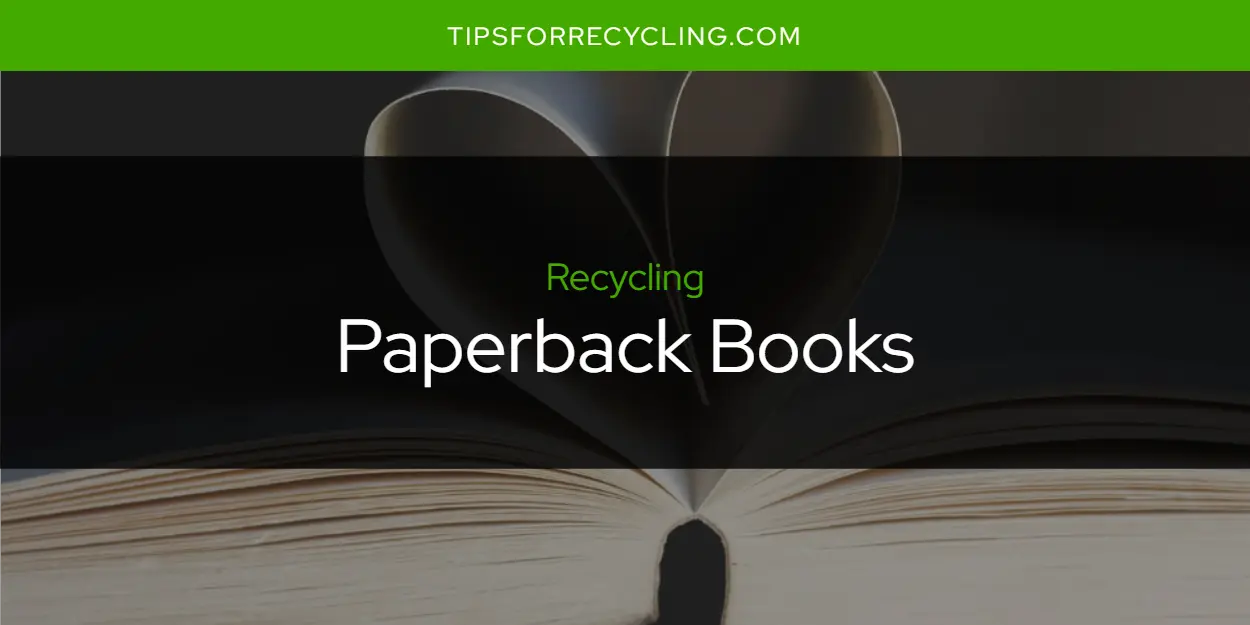Can You Recycle Paperback Books?

Paperback books are a great source of knowledge and entertainment, but when it comes time to get rid of them, many people don’t know what to do. Can you recycle paperback books? The answer is yes! Here’s an in-depth look at how to recycle your paperback books, the benefits of recycling paperback books, where to donate or recycle them, and more.
See the below map for locations where you can recycle paperback books.
Unfortunately, recycling paperback books will not make you money; however, some organizations may give you a small donation for donating your unwanted paperbacks. This can be great for those wishing to support a cause or organization they care about.
Similarly, see if you can recycle hardback books.
Recycling paperback books offers multiple benefits:
Reducing landfill waste: Recycling books conserves resources since recycled paper can be used in the production of new products such as office paper and newspapers.
Supporting literacy and education: Many organizations that accept used paperbacks resell them or donate them to other readers so they can continue to offer knowledge and entertainment.
Creating employment opportunities: Donating your unwanted paperbacks helps support people who repair and resell used books. This can create jobs in local communities while also making books more accessible by keeping prices low.
Similarly, see if you can recycle paper masks.
The best way to recycle your paperback books is by donating them to organizations that accept book donations such as libraries, bookstores, charities, schools or senior centers. These organizations may resell your paperback books or pass them along to other readers through book exchanges and donation programs.
Similarly, see if you can recycle paper bags.
You can find places that accept book donations by checking with your local library or bookstore as well as searching online for charities and thrift stores in your area that take book donations. It’s also a good idea to check with any schools or senior centers nearby that might take donated paperbacks for their students or residents.
Similarly, see if you can recycle notebooks.
If you cannot find any organizations in your area that will accept used paperback donations, there are still ways you can get rid of unwanted paperbacks responsibly:
Give away free on online marketplaces such as Craigslist or Freecycle – this may attract another reader who could benefit from the knowledge contained within the pages of these paperbacks
Look into companies that turn used paperbacks into new products such as notebooks, journals and stationery – this way your old books will have another life!
If all else fails then you can always put them in the trash – although this isn’t ideal it is better than leaving them lying around unused where they will eventually break down over time releasing pollutants into the environment.
Similarly, see if you can recycle textbooks.
By recycling paperback books we are helping reduce our contribution towards global warming by decreasing the amount of energy required for producing new materials from raw materials such as pulpwood trees which produce air pollution when harvested from forests if responsibly managed forests aren’t utilized for harvesting raw materials for producing new products such as office papers and newsprints instead reused material like recycled papers are put into use this significantly decreases air pollution produced due to excessive deforestation practices followed currently across many parts of the world . By reusing materials instead of creating new ones we’re also helping reduce water pollution caused due to improper disposal activities followed during manufacturing processes along with landFill issues caused due excessive use non-biodegradable packaging materials